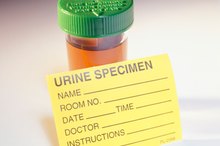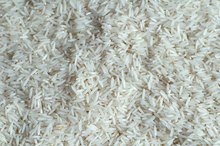What does fact checked mean?
At Healthfully, we strive to deliver objective content that is accurate and up-to-date. Our team periodically reviews articles in order to ensure content quality. The sources cited below consist of evidence from peer-reviewed journals, prominent medical organizations, academic associations, and government data.
The information contained on this site is for informational purposes only, and should not be used as a substitute for the advice of a professional health care provider. Please check with the appropriate physician regarding health questions and concerns. Although we strive to deliver accurate and up-to-date information, no guarantee to that effect is made.
Disorders That Cause a Sweet Smell on the Body
Disorders that Cause a Sweet Smell
There are a number of metabolic disorders that may cause a fruity smell on the breath, a sweet smell on the skin or a sweet smell in the urine. These disorders are treatable, though some may be signs of deeper underlying problems.
Maple Syrup Urine Disease
Why Does My Sweat Smell Sweet?
Learn More
Maple syrup urine disease (MSUD) is a metabolic disorder that is genetically inherited 2. It causes an inability for the body to break down the amino acids valine, leucine and isoleucine. This causes a build-up of harmful levels of these substances in the blood. Symptoms include:
- loss of appetite
- lethargy
- vomiting
- urine that smells like maple syrup
- seizures
- coma 2
Treatment involves a diet free of protein, intravenous intake of sugars, fats and fluids. Hemodialysis may also be used as a means of reducing the level of amino acids.
- Maple syrup urine disease (MSUD) is a metabolic disorder that is genetically inherited 2.
- It causes an inability for the body to break down the amino acids valine, leucine and isoleucine.
Lactic Acidosis
Lactic acidosis is cause when the level of lactic acid in the blood stream increases faster than it can be removed 1. Symptoms include nausea and weakness and a sweet, fruity smell on the breath or skin. Treatment is focused on amending the underlying causes of the disorder. Blood tests are necessary to check electrolyte levels. The most common cause of lactic acidosis is intense and prolonged exercise, this is due to the fact that lactic acid levels increase as oxygen levels decrease 1. It may also be caused by AIDS, cancer, respiratory failure, kidney failure and sepsis.
Diabetic Ketoacidosis
Do All Fruits & Vegetables Have Fructose?
Learn More
Diabetic ketoacidosis is a complication of diabetes 3. It occurs when there is insufficient sugar in the body to be used as a source of fuel and fat is used instead. Ketones–byproducts of the breakdown of fat–begin to build-up in the body with negative effects. Symptoms include:
- weakness
- frequent thirst
- frequent urination
- fatigue
- loss of breath
- nausea
- vomiting
- a sweet or fruity smell on the breath or skin
Treatment involves increasing the dosage of insulin and replacing lost fluids.
- Diabetic ketoacidosis is a complication of diabetes 3.
- Ketones–byproducts of the breakdown of fat–begin to build-up in the body with negative effects.
Related Articles
References
Writer Bio
Corinna Underwood is a freelance writer based in Atlanta. She specializes in health and lifestyle features. Her writing has been published in a number of magazines including "Alternative Medicine," "Alive" and "Chronogram". She is also the author of Haunted History of Atlanta and North Georgia and Murder and Mystery in Atlanta. She holds a Master of Arts in women’s studies from Staffordshire University.








